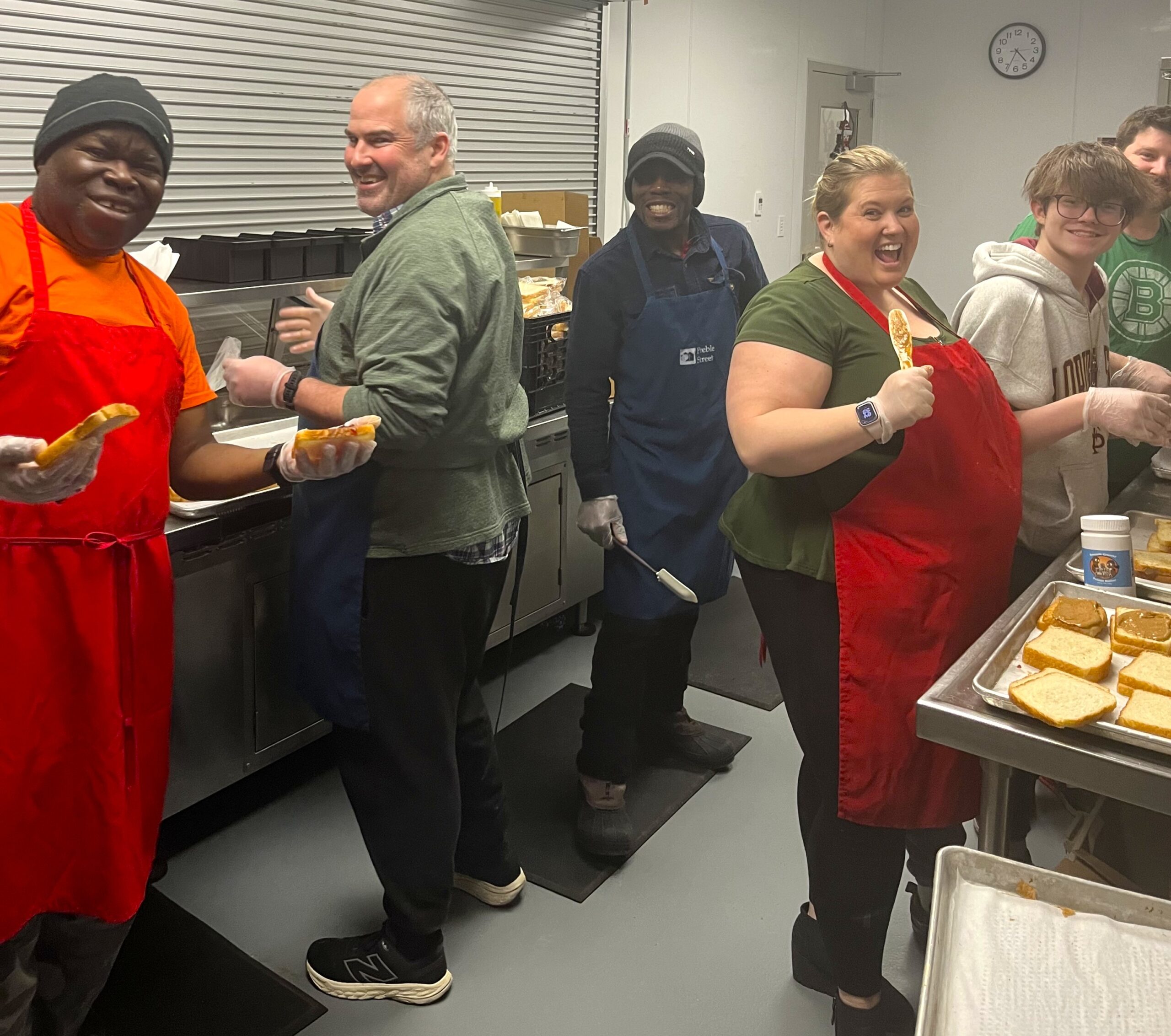Preble Street Food Programs is committed to providing the most nutritious, delicious, and balanced meals possible for people struggling with food insecurity in Maine. While recent updates to the Preble Street Food Security Hub have made this easier, there are still unique challenges. We rely on donations, meaning we often don’t know what ingredients we can cook with until they arrive. Plus, the supply of those ingredients can be affected by political and economic changes, such as the recent USDA cuts.
Each person receiving these meals has different tastes, backgrounds, and dietary needs, making it difficult to satisfy everyone with a single meal. Below, Chris Milligan, Preble Street Mobile Food Services Manager, shares how Food Programs staff and volunteers meet the needs of people experiencing hunger and homelessness in Portland.
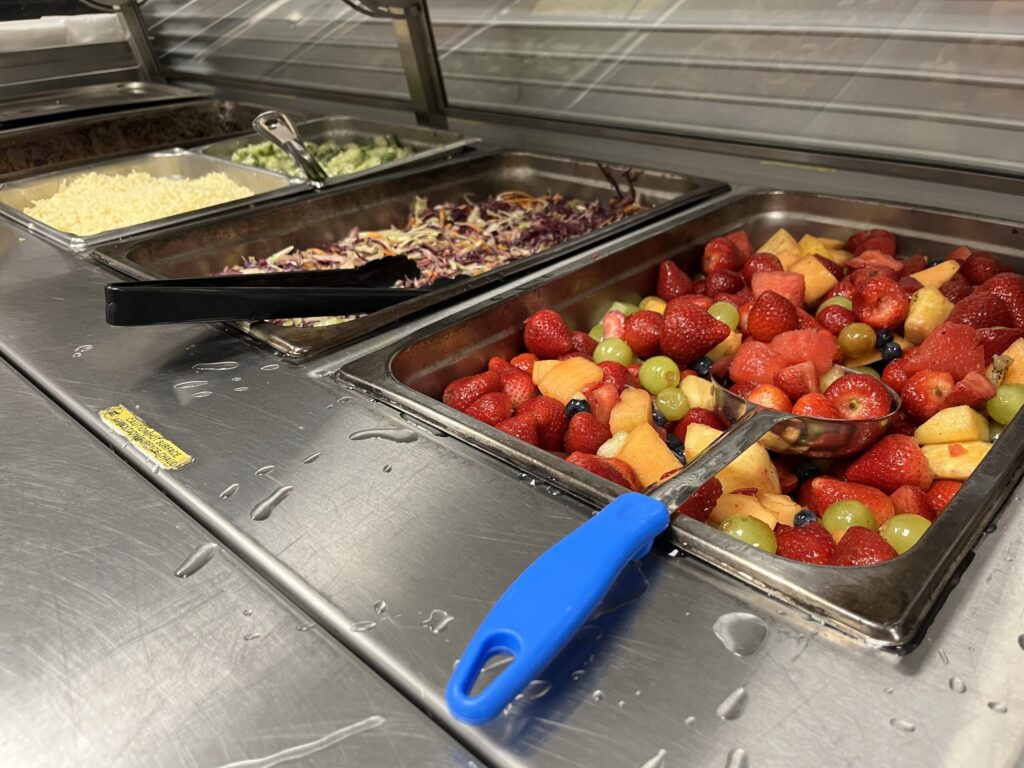
Through ongoing experimentation and constant communication with clients living outside and in local shelters, Preble Street Food Programs is always improving our systems and offerings. We are continually learning how to engage, nourish, and support our clients more effectively. A prime example of this progress can be seen over the last two years at the City of Portland’s Homeless Services Center (HSC). While the City owns and runs the shelter, Preble Street prepares and serves the meals.
At the HSC we view all feedback about our food as an invaluable opportunity to learn —whether it’s positive or negative. Positive feedback like “Mad props to the kitchen!” or “You should make this every day, it’s what the people want!” — such as the times we made hot sausage hoagies with peppers and onions or biscuits and sausage gravy —affirm the joy we bring to our clients. One client, who hailed from the South, even remarked, “Whoever made this knew exactly what they were doing.”
At the same time, we embrace constructive criticism. When we made scallion pancakes for example, feedback was…less enthusiastic. One client called it “cruel and unusual punishment.” Such reviews, though tough, help us refine and improve our offerings.
We take pride in the way food fosters connection. Our meals often spark conversations among shelter guests and staff, bringing back memories of home or better times. For instance, when we served Shepherd’s pie, every client in line shared a personal story — about their family, how they made the dish, and whether it was prepared differently or similarly. Those moments lifted everyone’s spirits, and rare smiles were seen all around. One client summed it up perfectly: “It tastes like home.”
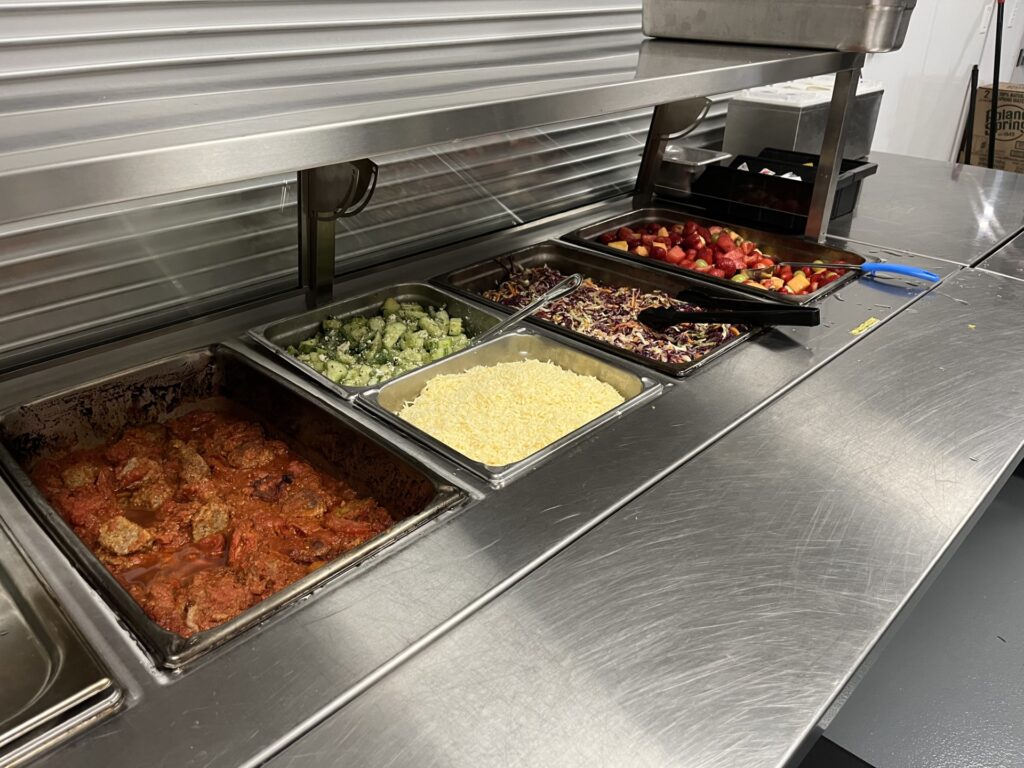
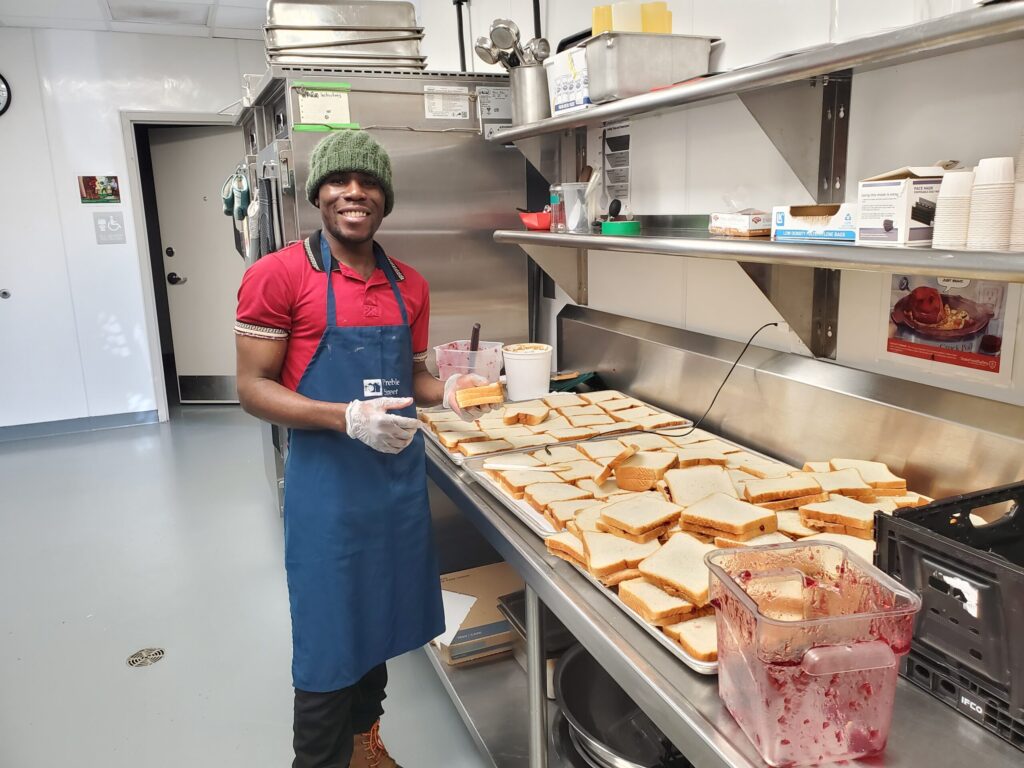
Food also serves as a bridge to further services. Due to negative experiences with parts of the larger system, many clients arrive at the Homeless Services Center feeling reserved, distrustful, or quiet. This may make it difficult for them to engage with caseworkers to work on goals like recovery, housing, and employment. Yet, the right meal can break down barriers and encourage connection. One evening, we served meatloaf, and a client who had previously only walked past the food
counter without taking anything came up and said, “I’ve been hearing people talk about the food being really good and even heard the word ‘delicious’.” Another client, who had not spoken to me for almost a year, approached me and said, “I always get excited when I see chicken cordon bleu on the menu. It’s the best food you make.”
Our meals can even change the way clients engage with food. One person, who had previously refused to eat anything he jokingly called “rabbit food,” finally tried our perfectly cooked lemon garlic asparagus and exclaimed, “I ate it all, I ate the veggies, and it was good. You know it’s good if I eat the veggies.” To this day, there is no vegetable he won’t try.
Food is more than mere sustenance — it is a powerful force that binds us together. It transcends the basic need for nutrition, fostering connection, conversation, and a sense of community. Meals are a foundation for relationships, whether they are with oneself, family, friends, or the larger community.
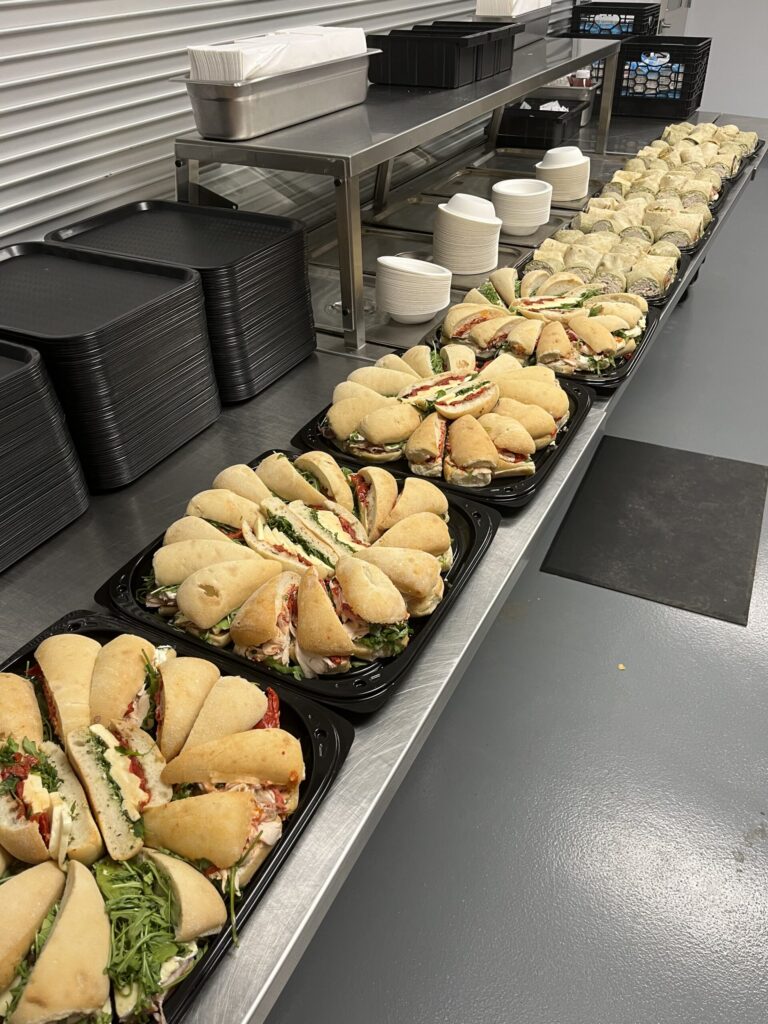
Keep reading
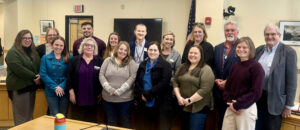
Preble Street testimony in support of permanent, sustainable funding for Maine emergency shelters
Maine needs and deserves safe, accessible, professionally run, and sustainable emergency shelters that can meet the needs of the growing number of individuals and families experiencing homelessness in our state. On Tuesday, February 10, 2026, shelter executive directors and staff from across the state went to Augusta to advocate for a sustainable funding source that

Take Action: Tell Maine to provide permanent funding for emergency shelters!
Depending on where a person lives in our state, they may need to travel hours to the nearest shelter if they become homeless. There is no guarantee that when they arrive there will be a bed available. Right now, there are not enough shelter beds in Maine for the thousands of individuals and families experiencing
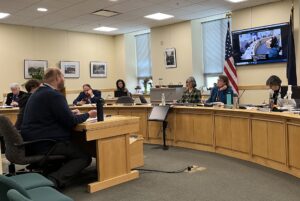
5 top legislative priorities – Spring 2026
The second session of the 132nd Maine Legislature began on January 7 and will run until April 15. Maine’s Legislature works in two-year cycles that include a long and a short session. We are in the short session, which covers only two types of bills: carry-overs (bills filed last session that still need to be
